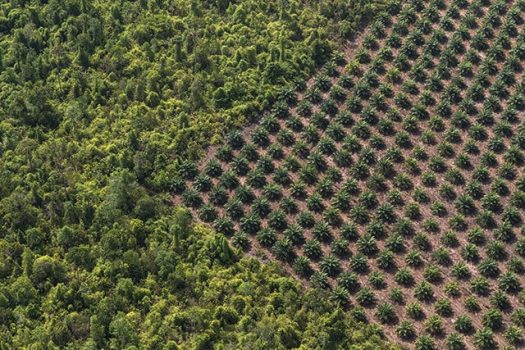With energy and the environment guaranteed to play an important role in this fall’s federal election campaign, Canadians face starkly different policy offerings from political parties, together with a bewildering array of information and disinformation. Here is my list of little-known facts and head-scratching paradoxes that underscore the impracticality or hypocrisy of the politicians and their enablers who push climate alarmism.

Climate Emergency – On June 17, the House of Commons passed a motion declaring a National Climate Emergency. First, there can be no such thing as a “national” climate emergency. Climate change is global, not national, and Canada’s contribution to global CO2 emissions is a miniscule 1.6 percent. Semantics aside, here are some facts to help you assess whether there’s really a “climate emergency”.
How much CO2 is in the atmosphere and how fast is it growing? A 2018 report from the U.S. National Oceanic and Atmospheric Administration (NOAA) notes that atmospheric CO2 concentration is currently one molecule per 2,500 molecules (note that I converted the data format from parts per million). That compares with one molecule per 3,000 molecules 50 years ago. That’s an average rate of growth in concentration of just 10 molecules per year.
Apocalyptic projections of rapid rises in sea level are driving municipal and provincial governments on our east and west coasts to implement “sea level rise plans”. These include sterilizing waterfront from development, building barriers and even buying out and destroying homes that are deemed vulnerable. So just how fast are sea levels rising? Here again the NOAA provides the answer. Despite all the calamitous rhetoric, the organization states that sea levels “continue to rise at the rate of about one-eighth of an inch (3.2 mm) per year”. At that rate, a house built 10 feet above sea level today would still be 9 feet 7 inches above sea level 40 years from now.
Climate Change Hypocrisy – South Africa, India, the Philippines, South Korea, Japan and China, all signatories to the Paris climate accord, are building a combined 1,800 new coal-fired power generating units. Coal-fired plants emit about twice as much CO2 per unit of power generated as natural gas plants. Meanwhile, international environmental groups campaign against exporting Canadian liquefied natural gas, which could help those countries dramatically reduce their CO2 emissions.

Here at home, the Trudeau Liberals have just introduced a tax specifically designed to discourage the building of new cleaner-burning gas-fired power plants as they continue to pursue the fantasy that wind and solar will keep the lights on. Good luck with that. After hundreds of billions of dollars invested, wind and solar contribute just 2 percent of global energy supply. And these sources work only when the wind is blowing and the sun is shining.
Climate Change Monovision – The Intergovernmental Panel on Climate Change (IPCC) would have us believe that fossil fuel emissions are the sole reason for climate change. But what about urbanization and deforestation? A study by the UN Department of Economic and Social Affairs states that the world’s urban population rose from 750 million in 1950 to 4.2 billion in 2018.
We don’t need the IPCC’s hugely complex computer models to know that cities are hotter than the countryside. All we need to do is walk from a paved sun-heated street lined with concrete buildings to a grassy park. Rather than reflecting the sun’s rays back to outer space, all that concrete and pavement absorbs the sun’s rays, creating a giant heat sink.
Despite all the calamitous rhetoric, the National Oceanic and Atmospheric Administration NOAA report states that sea levels “continue to rise at the rate of about one-eighth of an inch (3.2 mm) per year”. At that rate, a house built 10 feet above sea level today would still be 9 feet 7 inches above sea level 40 years from now.
Likewise, deforestation is turning vast tracts of normally cool African and South American jungles into heat-absorbing barrens. The U.S. Environmental Protection Agency – hardly a hotbed of climate change “denialism” – summarizes the combined effect. “Processes such as deforestation and urbanization,” it writes, “Contribute to changes in climate”. Trying to deal with any problem without considering all possible causes is both foolish and dangerous.
First, Do No Harm – The Liberal government’s proposed “national clean fuel standard” requires increased biofuel content in motor fuels. Government-mandated biofuel content requirements in the U.S. and the EU have already brought about the burning of critically important jungle habitat to make way for palm oil plantations, from which some biofuels are made. On the islands of Borneo and Sumatra, over 50,000 orangutans have died because of palm oil-related deforestation. Meanwhile, the diversion of corn from sale as a staple food to use as an input for ethanol production drove up food prices in a number of developing countries, exacerbating hardship for millions of the world’s poor to assuage the conscience of Western elites.


Who Burns the Stuff, Anyway – Several municipal councils, including those of Toronto and Victoria, are looking to sue fossil-fuel producers for causing climate change. But 70 percent of emissions come from downstream energy users, including the constituents of these very cities. And imagine their outcry if fuel producers failed to deliver!
B.C. Green Schizophrenia – B.C. Premier John Horgan, a champion of carbon taxes, called an inquiry to investigate high gasoline prices, but prohibited the panel from considering the price impact of provincial taxes. He also wants Alberta to build a new oil refinery to supply his province – but he’s against the pipeline expansion that’s needed to carry it.

Sorry, Only Foreign Tankers Allowed – The Trudeau government passed a law prohibiting movement of Canadian oil on the northern B.C. coast – the infamous “tanker ban”. Meanwhile, hundreds of tankers churn through the delicate and much more enclosed St. Lawrence estuary carrying oil from Saudi Arabia, Venezuela, Russia, Iraq, Nigeria, Angola and Algeria. While ship/whale collisions are virtually unheard-of on B.C.’s northern coast, those foreign oil tankers move through waters where a critically endangered northern right whale was killed in a ship collision just last month.
Return of the Great Crusader – Gerald Butts, former Personal Secretary to the Prime Minister, is back to help the Liberals win re-election. Before joining the Prime Minister’s Office (PMO), Butts was CEO of World Wildlife Canada (WWF), an organization intent on “landlocking” the oilsands by stopping new pipelines. In his role as PMO head honcho, Butts masterminded policies that are crippling our country’s oil industry.

Butts has admitted via his twitter account to receiving $361,642 from WWF during his first two years at the PMO. He claims it was severance pay, but how many Canadians have ever received severance for quitting their job? Butts resigned from the PMO after being accused of ethical transgressions surrounding the SNC Lavalin scandal. Why hasn’t this more direct and personal ethical transgression been reported by news media?
So there you have it: my list of points to ponder through these long and balmy midsummer evenings that “we the north” enjoy.
Gwyn Morgan is the retired founding CEO of Encana Corp.






